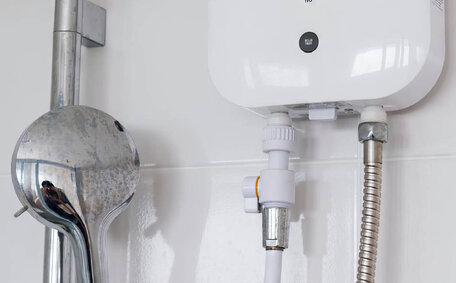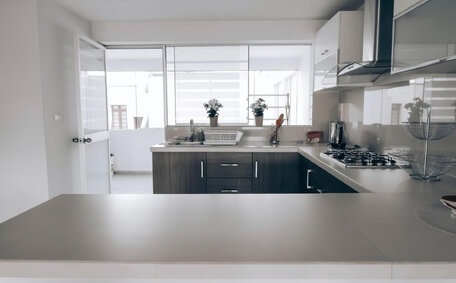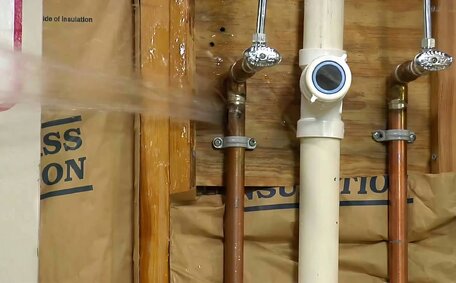Identifying Pipe-Harming Household Chemicals
Many common household chemicals can damage pipes and plumbing systems if disposed of improperly. Substances such as bleach, drain cleaners, paint thinners, pesticides, motor oil, and battery acid can damage pipe materials, corrode seals, or clog drains.
Bleach and ammonia-based cleaners, if improperly disposed of down drains, can react with piping and gaskets, leading to weakened connections and leaks.
Oil-based products, including paints and gasoline, leave residues that clog drains and should never be disposed of in sinks or toilets.
Strong acids or bases, including battery acid, are highly corrosive and can damage pipes and fixtures. Avoid pouring chemicals down drains to prevent substantial damage, such as erosion of pipes leading to the sewer system. Small amounts of caustic chemicals can cause considerable damage and leaks if flushed into your plumbing.
Dispose of hazardous household waste by consulting local resources to locate appropriate drop-off points or recycling programs, and avoid pouring them down sinks, toilets, or storm drains. Failure to properly dispose hazardous materials puts your plumbing and environmental health at risk.
Proper Storage of Hazardous Materials Before Disposal
When storing hazardous wastes and hazardous materials at home before proper disposal, follow these safety guidelines:
- Store chemicals in their clearly labelled original containers and avoid contact with skin, as well as eating, drinking, or smoking while handling them.
- Store chemicals securely, ensuring they are put into safe storage out of reach of young children and pets.
- Never mix different hazardous chemicals to prevent reactions that could release toxic fumes.
- Use spill trays or plastic sheeting under containers to catch leaks, ensuring responsible waste disposal.
- Store chemicals away from heat sources and don’t engage in any activities, such as smoking, that could ignite them.
- Maintain a well-ventilated storage area to prevent fume buildup and refrain from drinking or smoking near hazardous materials.
- Adopt proper storage handling by wearing gloves and eye protection when managing open containers.
- To ensure safety, triple rinse empty chemical containers with water, being careful to avoid eating, drinking, or exposure to contaminants.
- Before disposal, puncture or deface empty container markings to prevent reuse.
Secure storage of hazardous waste protects against environmental contamination until it’s disposed of via approved channels.
Safe Disposal Methods for Household Chemical Waste
Proper disposal of hazardous household chemicals is critical for protecting human health and the environment. Adopt these safer disposal options:
- Check if your local council or waste management authority holds household hazardous waste (HHW) drop-off days or has permanent HHW facilities. Most disposal programmes accept a range of items such as paint, pesticides, motor oil, batteries, and even mobile phones.
- Use commercial disposal services for dangerous goods, which may offer recycling and resource recovery. Some auto shops and hardware stores offer recycling programmes.
- Consider hiring a licenced third-party for the recycling of toxic or uncommon items, such as gas cylinders.
- Take small quantities of chemicals, no more than 20kg or 20 litres, to hazardous waste events, mindful of possible lower limits.
- Refrain from draining waste or placing it in regular bins to mitigate environmental contamination. Materials may leak into rivers and lakes, or other waterways, and release toxic gases when compacted inside collection trucks.
- Allow containers to air-dry without lids before disposal to prevent chemical reactions.
- Rinse containers thoroughly and label as 'non-hazardous’ before recycling to ensure safe processing.
These guidelines help contain or safely destroy hazardous waste, preventing contamination and protecting health and the environment.
Locating Nearby Hazardous Waste Drop-Offs
To locate nearby disposal facilities for hazardous waste, follow similar steps as you would for other key services:
- For information on hazardous waste disposal, check resources like Sustainability Victoria or contact your local council.
- In Bexley, the Rockdale Recycling & Waste Disposal Centre accepts limited quantities of hazardous items. Check their website for more information and details.
- Prepare your hazardous waste by ensuring containers are tightly sealed, clearly labelled, and not leaking. Limit transports to 20kg or 20 litres maximum per council regulations.
- Don’t leave hazardous waste unattended at kerbside; wait for supervised disposal if necessary.
- Adhere to on-site safety precautions such as wearing gloves and avoiding ignition sources near flammable materials.
Taking responsibility to properly dispose of hazardous household chemicals protects both plumbing infrastructure and prompts you to contact your plumbing and environmental services. Engaging with your local authorities can help you access safe HHW drop-off resources in your region.
Avoiding Environmental Contamination from Chemicals
Improper disposal of hazardous chemicals can devastate local ecosystems and environments. Substances like paint thinners, pesticides, bleach, batteries, and motor oil contain toxic compounds that can leach into soil and contaminate groundwater supplies if poured down drains or dumped irresponsibly.
In the Bexley area, improper chemical disposal threatens native bushland, wetlands, and the Woronora River. Allowing dangerous contaminants into waterways poisons aquatic life and can enter the food chain, putting all local wildlife at risk.
To protect the environment:
- Refrain from pouring any chemicals down sinks, toilets, or stormwater drains, opting for approved disposal methods.
- Like other residents, consult your nearest council about household hazardous waste drop-off days to properly dispose of dangerous materials.
- Hazardous waste disposed of must be stored securely until it can be disposed of safely, thus preventing leaks or accidental spills.
- Triple rinse empty containers and clearly label as 'non-hazardous’ before recycling.
Following hazardous waste regulations keeps toxic substances contained and out of natural ecosystems. We all have a duty to dispose of dangerous chemicals responsibly and protect Bexley’s precious local environments.
Emergency Protocols for Chemical Leaks and Spills
If hazardous chemicals like bleach, paint thinners, or battery acid leak or spill in your home or business, follow these emergency protocols:
- Evacuate the spill area promptly and seek fresh air to avoid the serious dangers of inhaling chemical fumes.
- If the spill is flammable, eliminate all nearby ignition sources. Don’t turn any lights or electrical equipment on or off.
- In the event of an immediate fire or health risk, call 000 and inform the local fire brigade.
- Contain the spill if safe to do so. Use absorbent materials or create a dam to stop materials spreading into drains or soil.
- Open windows and doors in the affected area but shut off any fans or AC that could spread fumes.
- Seek medical help if chemicals made contact with eyes or skin or if vapours were inhaled. Rinse skin or eyes gently with cool water.
- Contact Bexley Plumbing on 1300 349 338 if chemicals may have entered sink or floor drains and damaged plumbing systems.
- Without appropriate training and a spill kit, wait for emergency crews to clean up spills.
- Once the immediate danger has passed, follow safe disposal methods to properly dispose of used absorbents and other hazardous waste materials from the spill.
Quickly responding to chemical leaks limits health risks and prevents wider contamination. For plumbing-related concerns after a hazardous materials spill in the Bexley area, contact the specialist emergency plumbers at Bexley Plumbing.
Maintaining Pipe and Drain Health with Proper Disposal
To keep plumbing systems running properly, it’s vital to practise safe disposal habits and preventative care when handling household chemicals.
A few general tips include:
- Opt for environmentally-friendly cleaning alternatives such as vinegar, baking soda, or plant-based detergents instead of harsh chemicals.
- Install sink strainers and drain screens to catch food scraps, hair, and other debris before it causes clogs or builds up inside pipes.
- How do I deal with cooking oil? Pour old cooking oil into a sealed container and dispose of it responsibly at a hazardous waste drop-off point.
- Have a professional plumber inspect sink traps and plumbing yearly to check for damage or leaks that improper disposal may have caused over time.
- Consider upgrading from old steel or iron piping to more durable PVC or PEX lines less prone to corrosion from caustic drain cleaners.
For 24/7 emergency plumbing services or to inquire about maintenance plans focused on optimising drainage flow and pipe health through Bexley Plumbing’s preventative care programmes, contact our team today at 1300 349 338 or [email protected].






